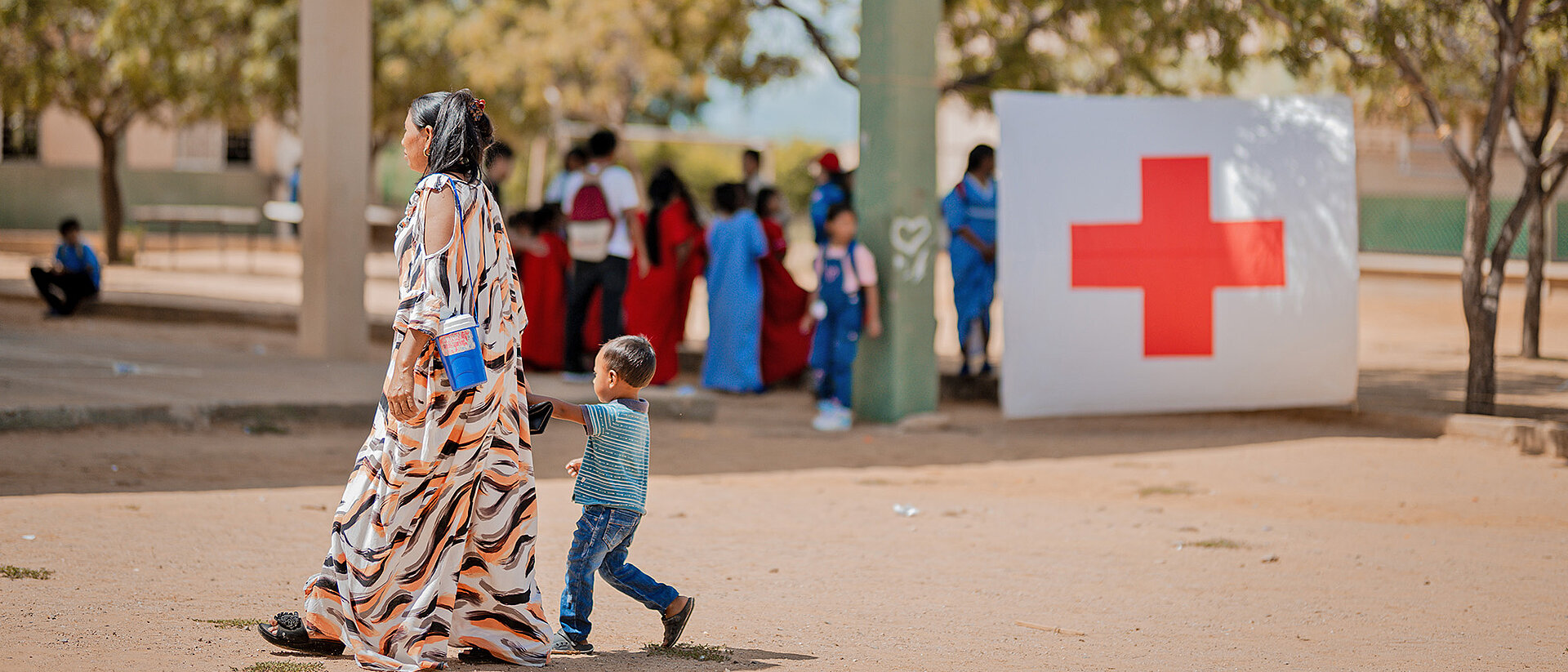
Latin America
Natural hazards and climate change, social inequality, migration, violence and crime: Latin American countries are facing multiple crises. The German Red Cross supports local Red Cross societies in tackling these complex humanitarian challenges.
Multiple crises
Latin America and the Caribbean are among the regions most affected by natural disasters worldwide. Since 2000, more than 190 million people have been affected by damage caused by hurricanes, earthquakes, droughts, landslides and forest fires. Climate change is causing extreme weather events to occur more frequently, and these events are compounded by poverty, social inequality and unsafe living conditions in the region, with each crisis exacerbating the others.
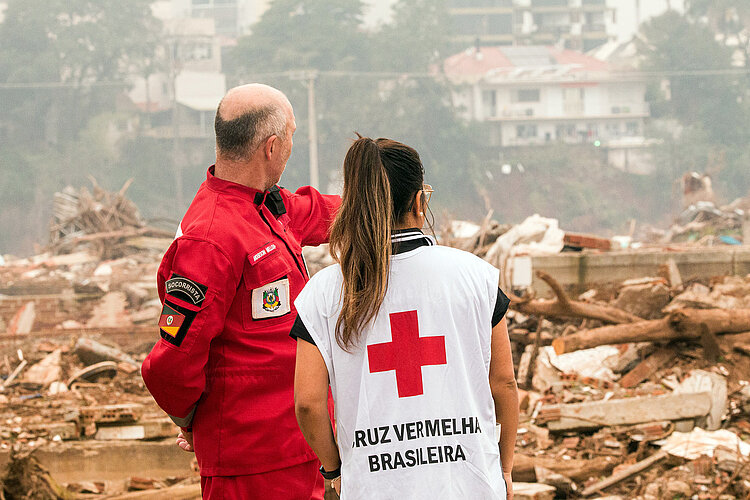
Natural disasters, social instability & migration
Natural disasters are affecting agricultural production and causing food prices to rise. This is putting millions of people in a situation of food insecurity. Living conditions are exacerbated by political instability, economic crises and inflation, as well as widespread gang crime, violent conflicts and social tensions.
The increasing lack of prospects is driving more and more people to leave their homes – often under dangerous conditions.
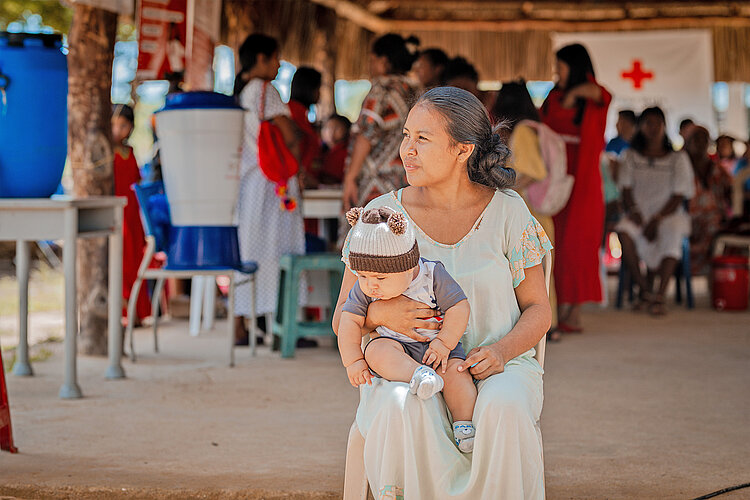
Inadequate healthcare
In large parts of Latin America, the health situation has deteriorated significantly. The causes are complex: persistent social inequalities, economic instability and overburdened healthcare systems mean that many people are denied access to medical care. Preventive services and basic infrastructure are lacking, especially in rural areas and marginalised urban districts.
Humanitarian challenges
The German Red Cross works with its sister organisations in Latin America on the basis of innovative, needs-oriented and community-based approaches in order to take account of the different socio-economic and ecological conditions in the respective countries.
We are able to plan and implement our local projects in the areas of health, water and hygiene, food security and disaster preparedness thanks to funding from the Federal Foreign Office and the European Union (ECHO) as well as private donations.
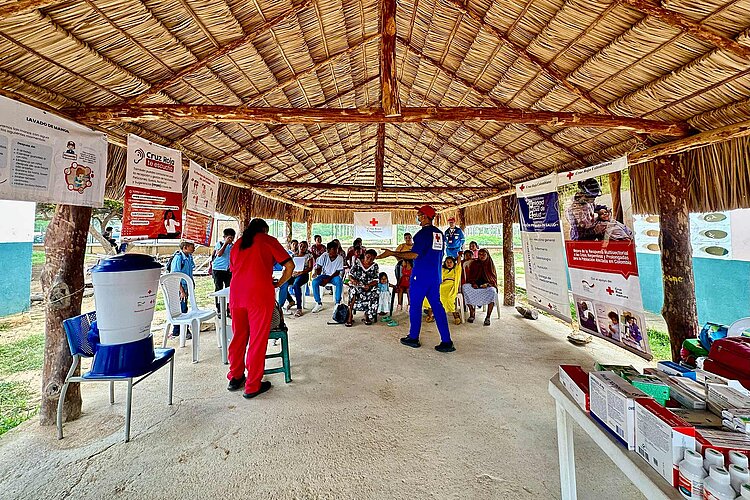
Programmatic Cooperation
The GRC maintains five offices in Latin America – in Colombia, Honduras, Ecuador, Guatemala and Venezuela. Based there, we coordinate cooperation with our partner organisations according to the following criteria:
- Needs-oriented
- Community-based
- Risk-oriented
- Innovative
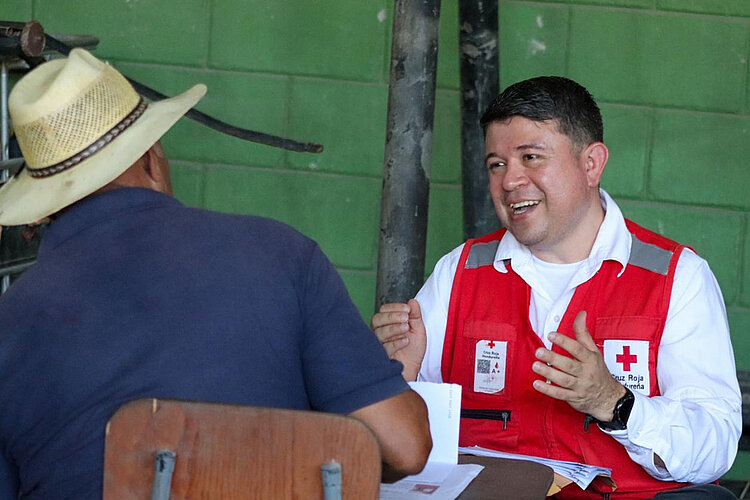
Goals of Cooperation
Our cooperations in Latin America are guided by the goals:
- Resilience: Strengthening the resilience of local communities in coping with crises
- Sustainability: Short-, medium- and long-term presence and support in crisis-prone areas
- Effectiveness: Rapid and efficient relief activities for people affected by crises
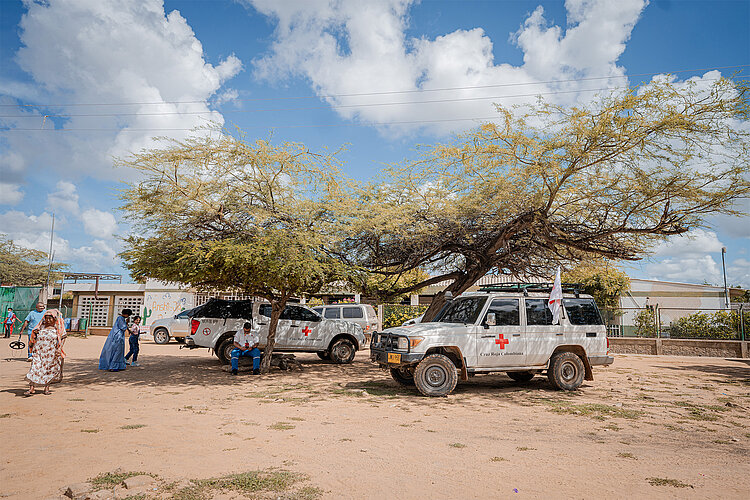
GRC´s Humanitarian Aid
The German Red Cross currently supports 14 national Red Cross societies on the Latin American continent. The cooperation covers activities in the following areas:
- disaster prevention and health (focus)
- disaster and crisis management
- Water and sanitation
- Food security
- Adaptation to climate change
Anticipatory action
Saving lives, reducing damage and strengthening people's resilienceDisaster risk reduction is becoming more and more important in Latin America due to increasing numbers of extreme weather events. In recent years, the German Red Cross has made considerable progress together with its national Red Cross Societies: Thousands of people have been reached directly through anticipatory actions. They have been able to better prepare themselves for impending disasters and minimise risks.


